Leading by example: A lesson that never gets old
The role model of key leaders and the dissemination of such examples in society are very necessary. Because moral education without examples is like lacking extremely vivid visual teaching aids.
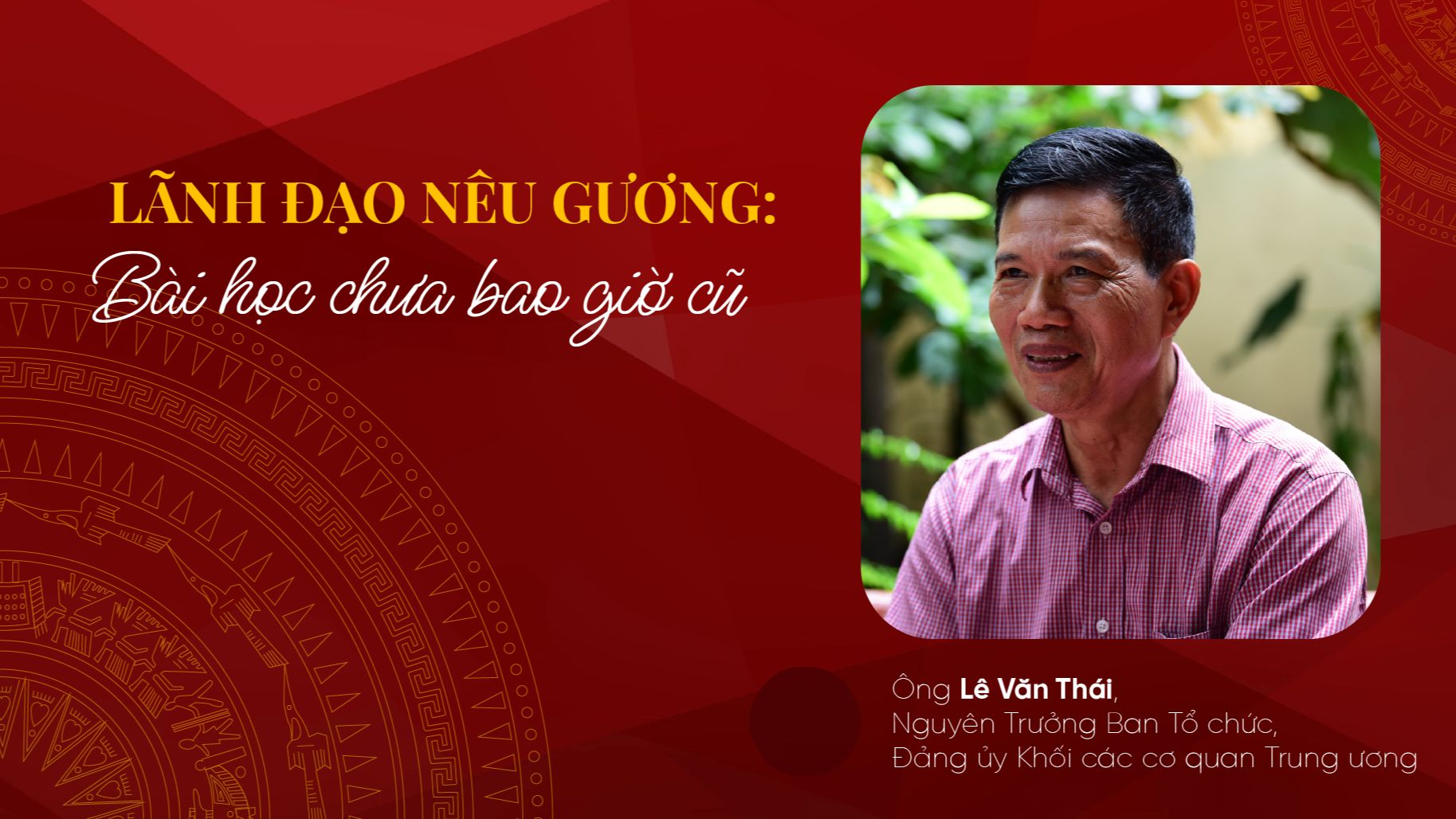 |
At the recently held 6th Central Conference of the 13th tenure, the Central Executive Committee discussed the Project to summarize 15 years of implementing Resolution 5 of the 10th Central Committee on continuing to innovate the Party's leadership method for the activities of the political system. The Central Committee will soon issue a new Resolution on this issue.
Through the Party's documents, the Party's leadership methods can be summarized as follows: The Party leads by Platform, strategy, policy orientations and major policies; second, the Party leads by propaganda, persuasion and mobilization; third, the Party leads through Party organizations and Party members operating in organizations of the political system and through organizational and personnel work; fourth, the Party leads by inspection and supervision; fifth, the Party leads by exemplary actions of Party members.
It can be seen that, right from its inception, our Party established for itself one of the most important leadership methods, which is the exemplary role of Party members and cadres, just as President Ho Chi Minh once said, "A living example is worth more than a hundred propaganda speeches."
Talking to VOV.VN reporter about this content, Mr. Le Van Thai, Former Head of the Organization Committee, Party Committee of Central Agencies, emphasized that we can do better and continue to deepen the leadership method by setting an example for the team of Party members and cadres.

PV: Sir, simply put, what is setting an example?
Mr. Le Van Thai:Setting an example is to complete one's tasks in the best way possible, but the important thing is that one's own desire to complete the task well is not a pressure on oneself to set an example. At that time, setting an example will be a natural thing, a way of life for a party member, only then will setting an example be truly effective. Setting an example is not forcing oneself to act, but a natural thing in life.
PV: According to your observation, does our society have many role models to spread?
Mr. Le Van Thai:In reality, there are many examples in social life, some of which are very simple, but the important thing is that the masses themselves feel them. However, our difficulty in propaganda work today is that we can promote 10, 100 good examples, but sometimes only a few bad examples cause negative impacts. That is a very thoughtful issue today.
Another point in the issue of setting examples is that there must be many examples in all areas of political and social life, at all levels. And of course, in accordance with Ho Chi Minh's ideology, morality and style, those examples must be comprehensive in self-cultivation, in the way of behaving with the masses, with those around them and comprehensive in work, that is, setting an example in leading the completion of political tasks.
PV: In your opinion, how much attention has our Party paid to the pioneering and exemplary role of Party members and cadres?
Mr. Le Van Thai:Through each revolutionary stage, along with the improvement of the Party's leadership methods, the requirement of setting an example has become increasingly clearer and more specific. Most recently, Regulation 08 on setting an example, Regulation 37 on what party members are not allowed to do, and Conclusion 21 on continuing to implement the Central Resolution 4 of the 11th and 12th terms have set out specific contents for party members to demonstrate their exemplary behavior to the masses more and more clearly.
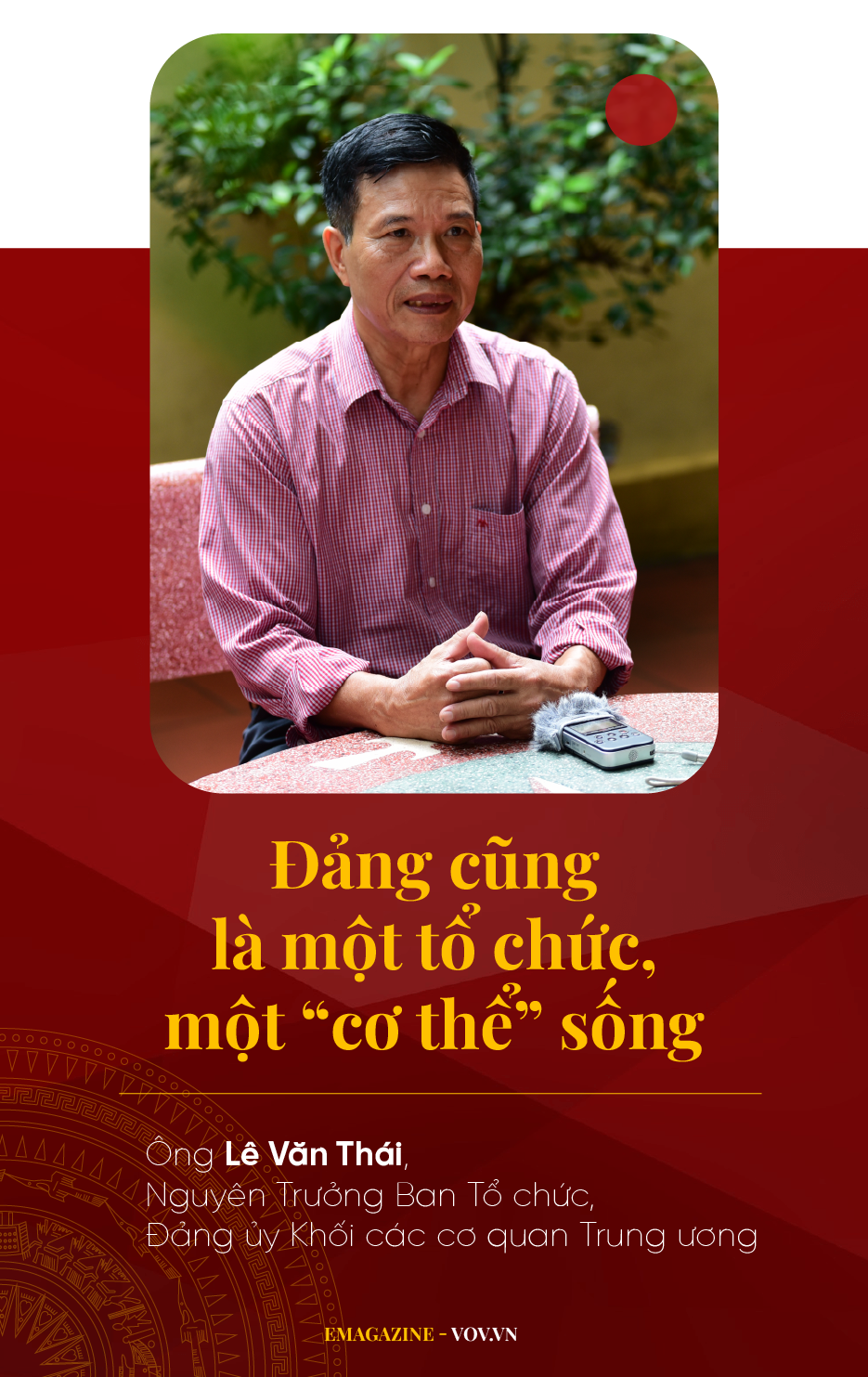 |
PV: The requirement for party members to set an example is very firm, but the number of bad "examples" is on the rise. What do you think is the reason?
Mr. Le Van Thai:The Party is also an organization, a living “body”. Besides the exemplary, sacrificial, and selfless actions of a large number of Party members and cadres, there are also fallen cadres, and unfortunately, the number of fallen cadres is growing. That is why there is Regulation 08, Regulation 37, or Conclusion 21. It can be said that the requirements for setting examples have been specified in very detailed contents, placing very high demands on the exemplary actions of Party organizations and Party members, considering this one of the important leadership methods of the Party to fight against degradation in political ideology, morality, and lifestyle.
This is a very fierce and fierce struggle. Therefore, at this time, we need a spirit as the Central Propaganda Department has pointed out, which is "using beauty to eliminate ugliness". Along with the fight against corruption and negativity, as well as eliminating officials who violate the law from the team, we must promote examples to encourage and convince the masses.
In the future, I really hope to see more examples among party members at all levels, because these are "living" examples that the masses can feel immediately, feel directly, not through any propaganda lens, and will spread throughout society. That is very necessary.
PV: The higher the leadership position, the more exemplary one must be, "top first, bottom last", "inside first, outside last", work from top to bottom, sir?
Mr. Le Van Thai:We often say to each other that "what cadre, what movement", the role of the leader, the role of setting an example of the leading cadre in each agency and unit is very important. Therefore, it is easy to see that the success of many agencies and units in carrying out their political tasks is also closely linked to the exemplary leadership of the cadres at all levels there; which means that in some units, serious violations are also associated with the decline in the quality of the cadres and leaders. Therefore, the problem arises that in order for cadre management to be effective, there must be a mechanism to strictly monitor power to prevent unfortunate violations from occurring.
 |
PV: So, in your opinion, what is an effective monitoring mechanism?
Mr. Le Van Thai:We have concretized many contents, which are being increasingly perfected. Since the 13th Congress, the Party has issued many documents on personnel work, from planning, training, fostering, arranging, assigning, rotating, dismissing... These tasks are being carried out more and more strictly, contributing to better control. However, this degradation originates from each cadre. No matter how strict the mechanism is, if the focus of that cadre has degraded, mistakes can still occur. The important thing is that we have timely mechanisms to prevent it early, not causing serious consequences.
PV: But identifying the degradation and correctly evaluating the staff is the weak link?
Mr. Le Van Thai:That's right. That's why we have very strict regulations on evaluating cadres, evaluating from the inside out, outside in, top down, bottom up, and then 360-degree reflection on cadres to evaluate.
But cadres are human beings who also develop, so the assessment must not only be correct in the present but also must forecast issues regarding development trends. This is a big problem for cadre work.
 |
PV: So has our current personnel work predicted the development direction of the staff, sir?
Mr. Le Van Thai:Evaluating cadres, the environment for evaluation is important. Because we evaluate by the collective, so that collective must be a good collective; the vote of confidence must be a truly democratic collective. Therefore, in places where there is factionalism and disunity, there are very good people but when voting they do not get any votes, "good but at a loss" is because that environment does not ensure the evaluation requirements. To evaluate correctly, there must be a good environment for evaluation; that agency or unit must be a good collective to have good evaluations.
PV: So, the evaluation of cadres cannot be based solely on the evaluation environment?
Mr. Le Van Thai:In Resolution No. 26, Resolution of the 7th Central Committee, Session XII, there is a very important idea that along with the evaluation according to the correct process, the agency using cadres can expand the forms of collecting opinions to evaluate people's satisfaction with cadres in an appropriate manner. The evaluations are considered to provide information, and the person with the right to decide on cadres is the one who must bear the highest responsibility. Those who receive information about cadres must receive it in their own way, and the highest decision is still the person using the cadres.
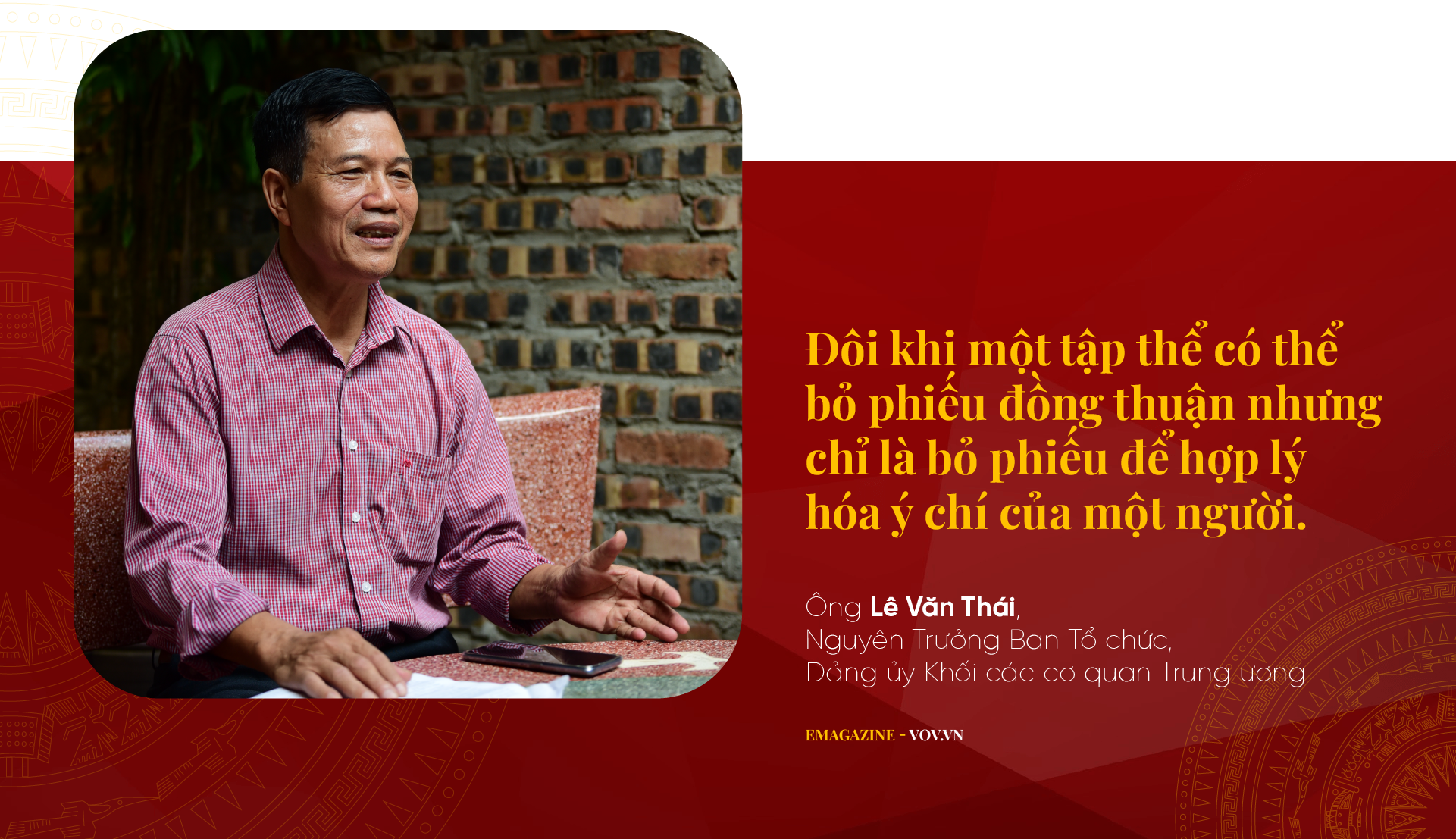 |
From my years of experience working in local organizations, I find this extremely important in order to properly evaluate cadres in such conditions and environments.
To evaluate cadres, we need to return to the principle of democratic centralism. If this principle is not implemented, the evaluation of cadres, although still carried out according to the correct procedure, will produce incorrect products, it will become a sham. Sometimes a group can vote in consensus but it is only a vote to rationalize the will of one person, this situation has happened before.
We are still improving the evaluation process and evaluation principles. But no matter how perfect the process is, if the person in charge of the personnel work has an impure heart, fraud can still happen.
 |
PV: So, how will we perfect the Party's leadership method by setting an example?
Mr. Le Van Thai:We can do better and continue to deepen the leadership method by setting an example for the team of Party members and cadres. From our experience in practice, in the coming time, there are 3 very important things that need to be done: setting an example for key leaders is very necessary, setting an example is not only limited to the scope of agencies and units but also for the cadres who are working, through the media, we must spread those examples. Setting an example for key leaders and leaders at all levels is completely consistent with the requirements of Resolution 26 of the 12th tenure on building a team of cadres, especially strategic cadres, which states the task of building the image of the leadership positions of the Party and the State, we must do that, creating great encouragement.
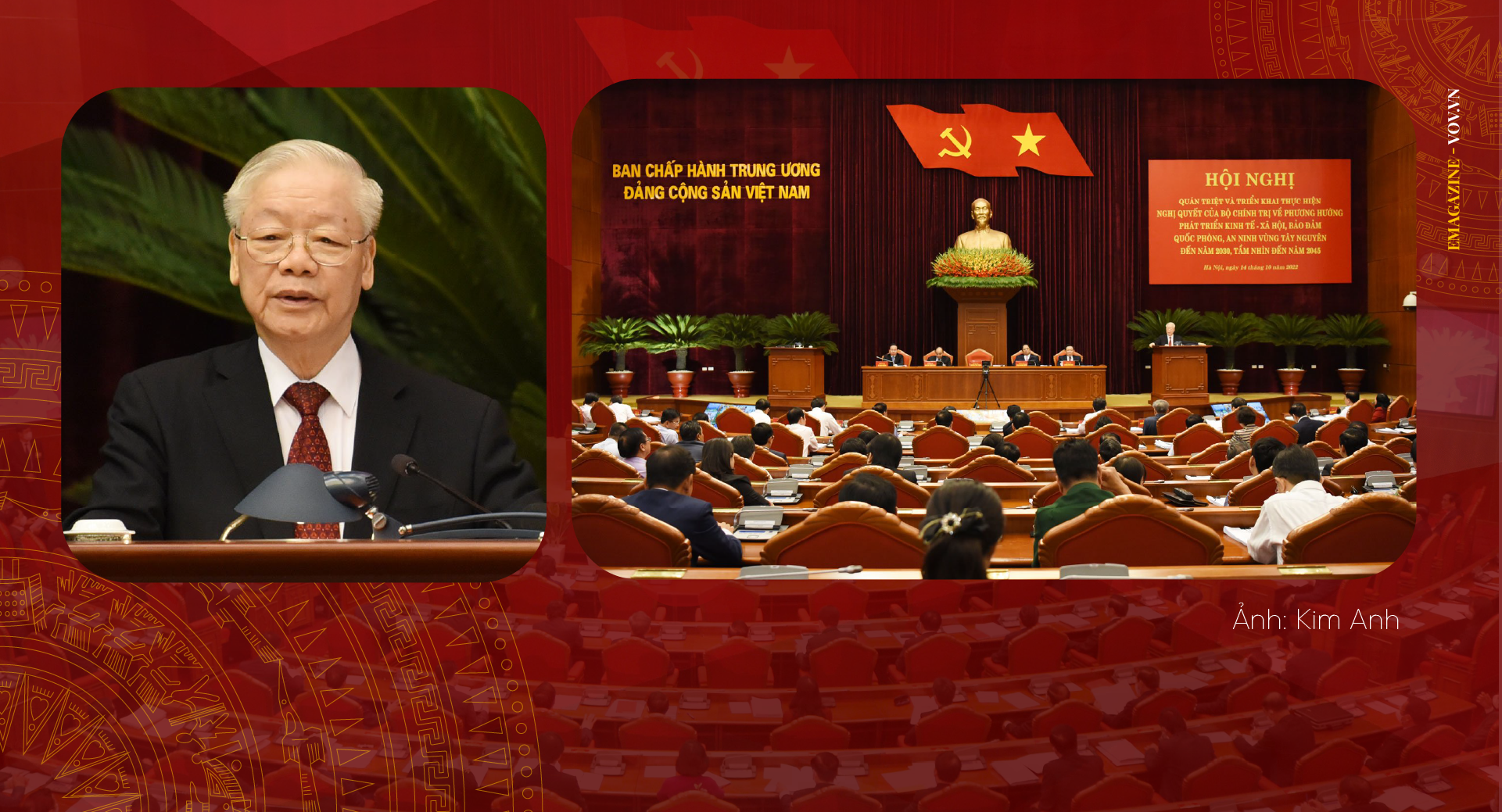 |
It is necessary in society and in life, because in moral education without examples is like lacking extremely vivid visual teaching aids. Moral education cannot lack examples.
In fact, what a role model wants most is to be recognized, not necessarily promoted or rewarded; a role model wants to be recognized by the community, society, and the agency. From the perspective of personnel work, you must correctly evaluate that person, and from correct evaluation, you can take measures to motivate them. Evaluation is number one, motivation is only secondary.
PV:Thank you sir./.
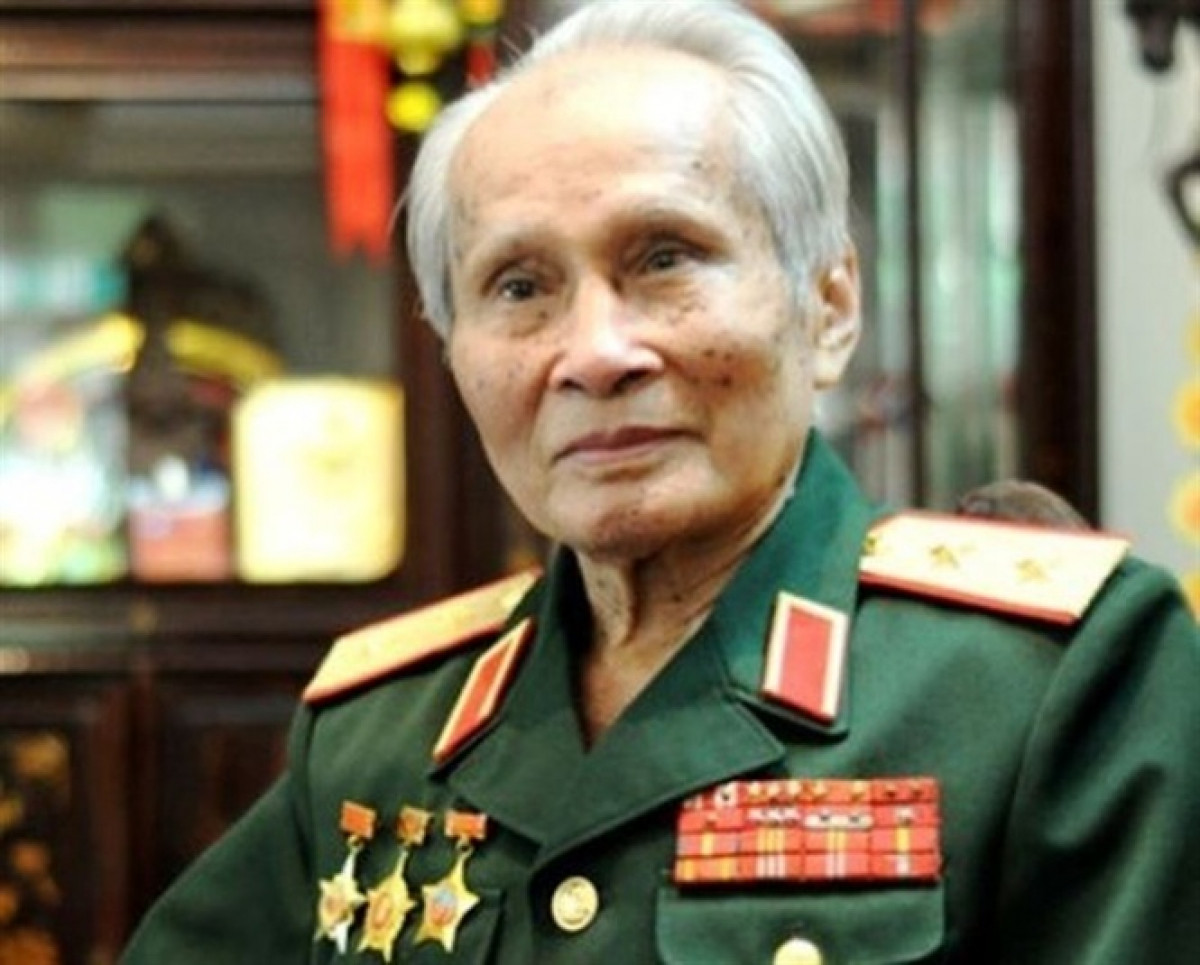
10/09/2021
